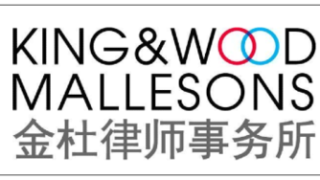Asia-Pacific
The parties have agreed on a court-guided settlement covering Pantech’s entire SEP portfolio, marking a global first
The Australian side, in particular, can benefit by capitalising on its independent status to bring in more work from Western countries while still working with its former Chinese partner
King & Wood Mallesons will break into two entities, 14 years after a merger between a Chinese and an Australian firm created the combined outfit
The association’s Australian group has filed a formal complaint against the choice of venue, citing Dubai as an unsafe environment for the LGBTQIA+ community
Recently published Special Focus articles
Recently published Special Focus articles
-
Sponsored by Griffith HackTrack and trace smartphone applications used in the fight against COVID-19 are representative of a relatively new industry falling between the healthcare, IT, medical devices and pharmaceutical sectors.
-
Sponsored by Griffith HackMānuka is the Māori name for the Leptospermum scoparium, a species of flowering plant in the myrtle family, Myrtaceae. Mānuka nectar is renowned for producing 'liquid gold', a pure honey possessing unique medicinal and antibacterial qualities.
-
Sponsored by ABE & PartnersAs of October 1 2019, the Tokyo District Court and the Osaka District Court started operating a new practice for mediation concerning IP rights (IP mediation). IP mediation is designed to solve disputes over IP rights in a simple and speedy way by obtaining opinions on the dispute, in principle, by the third mediation date, from the mediation committee composed of the judge of the IP division and experts such as lawyers and patent attorneys with vast experience in dealing with IP cases. IP mediation is a judicial service providing the third dispute resolution tool within the framework of existing laws. It is unique and different from litigation and provisional disposition.
-
Sponsored by Beijing East IP近年、中国市場規模の継続的な成長、中国の知的財産保護環境の改善、人々の知的財産保護への意識の高まりに伴い、中国における特許・商標の出願件数と知的財産紛争は急速に増加している。企業は、大量の特許・商標出願件数がもたらす紛争リスクに対し、それらを見逃さず、積極的に対応する必要がある。また、安全な生産と運営活動を守るために、中国の知的財産保護の現状について理解を深め、知的財産制度を最大限に活用する必要がある。以下、知的財産レイアウト、知的財産紛争、法規制の推移の観点から、中国における特許・商標の出願と保護の現状及び動向について分析する。
-
Sponsored by SS Rana印日関係は、6世紀の日本への仏教の普及から始まりました。1949年の第二次世界大戦後、インドのJawaharlal Nehru首相は東京の上野公園にインド象を一頭寄贈しています。1952年4月28日に両国は平和条約を締結して国交を開始します。この条約は第二次世界大戦後に日本が締結した最初の平和条約の一つです。 以来両国は互いに対する強固なサポートを育んで維持し、グローバルコミュニティにおける互いの立場を強化してきました。最近ではインドのNarendra Modi首相と日本の安倍晋三首相の主導の下、両国はそのつながりを強化し、 互いの重要性を認識しています。
-
Sponsored by Hechanova Group経済協力開発機構(OECD)は、2020年の「エコノミック・アウトルック」第2020巻第1号で、世界のほぼすべての国々に影響を及ぼしているパンデミックによる経済活動の急落から、2021年に日本が緩やかに回復すると予測しています。 OECDによると、これは、日本政府が家計、企業、雇用を支援するための幅広い対策を打ち出すことにより、これまでにない経済支援をしたことによるものです。




















